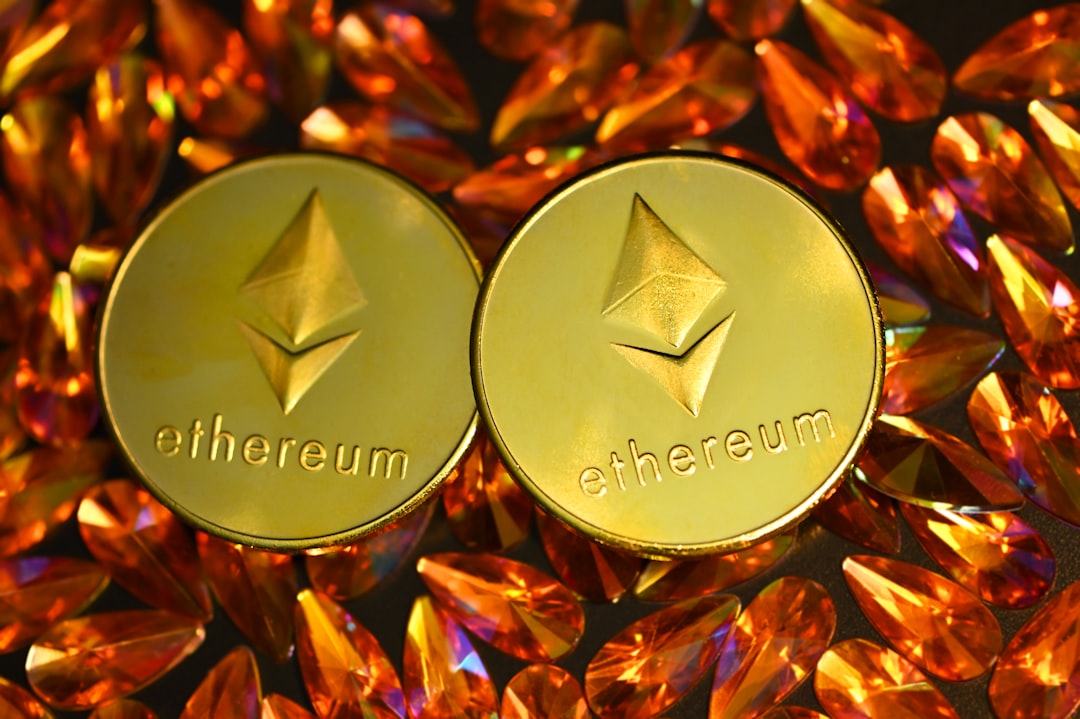Navigating DeFi Community Hubs and the Power of User Generated Dialogue

The world of decentralized finance is moving faster than ever, yet many new participants still feel adrift when it comes to finding reliable information or forging meaningful connections. Rather than scrolling endlessly through whitepapers and transaction logs, the real treasure lies in the conversations that take place within community hubs. These spaces whether they are Discord servers, Telegram groups, subreddit threads, or even dedicated forums on LayerZero serve as living laboratories where ideas are tested, projects are refined, and collective wisdom is born. For anyone looking to thrive in DeFi, mastering the art of navigating these hubs and engaging in authentic dialogue is not just useful; it’s essential.
The Landscape of DeFi Hubs
DeFi community hubs are scattered across the internet, each with its own culture, rules, and focus areas. Discord remains the flagship, offering a blend of voice, text, and bot integrations that enable real‑time collaboration. Telegram channels are prized for their low barrier to entry and high accessibility, especially in regions where Discord is blocked. Reddit subreddits, such as r/DeFi or r/Uniswap, provide a slower, more deliberative environment where users can thread deep dives and maintain an archival record of discussions. Finally, niche forums and blogs built around specific protocols like the official Uniswap forum or the Arbitrum Discord offer curated content and direct access to development teams.
Each platform brings unique advantages: Discord excels at quick, cross‑channel coordination; Telegram’s simplicity attracts casual participants; Reddit’s threaded structure supports long‑form analysis; forums often host AMAs and release notes directly from core teams. Understanding these distinctions helps participants choose the right venue for their questions, projects, or networking goals. Furthermore, many hubs employ bots that automate announcements, provide price alerts, or even run governance polls, making the experience highly interactive and data‑driven.
The best hubs are not just channels of communication; they are ecosystems where trust is earned through transparency and collaboration. Governance tokens, reputation systems, or “role” badges are common mechanisms to signal expertise. When a new user joins, they quickly observe the social fabric: how frequently moderators intervene, the tone of feedback, and the balance between promotion and scrutiny. These cues inform whether a community will be welcoming or gate‑kept, whether it values rigorous peer review or embraces speculative hype. Recognizing this, seasoned DeFi participants often spend weeks “listening” before contributing, ensuring they align with the community’s ethos.
Why User Generated Dialogue Matters
In a decentralized space, information is no longer monopolized by a single entity; it is a collective, evolving narrative. User‑generated dialogue fuels innovation by exposing blind spots that project teams may overlook. When a trader discovers a liquidity provision flaw, the first comment in a Discord channel can spark a chain reaction: developers patch the bug, the community updates risk metrics, and others learn to safeguard against similar vulnerabilities. This rapid feedback loop is a hallmark of DeFi’s resilience.
Beyond technical troubleshooting, dialogue shapes governance outcomes. Many protocols now empower token holders to propose, debate, and vote on upgrades via on‑chain mechanisms. The discourse preceding a vote questions about feasibility, economic impact, or user experience provides the data that rationalizes decisions. A well‑articulated counterargument can prevent costly missteps, while an enthusiastic endorsement can accelerate rollout. In this sense, community conversation is not ancillary; it is the decision‑making engine that translates code into widespread adoption.
Moreover, dialogue builds social capital. Participants who consistently contribute high‑quality insights, such as detailed research reports or educational tutorials, accrue reputation. This standing opens doors: early access to beta features, invitations to developer meet‑ups, or priority support for critical issues. Conversely, neglecting community norms can lead to isolation or even negative slurs. The social dynamics within hubs mirror those of traditional industries: mentorship, collaboration, and reputation are the currency of progress.

The power of user‑generated dialogue also lies in its democratizing effect. In centralized finance, institutional investors control most conversations; in DeFi, anyone with a wallet can speak. This inclusivity lowers the barrier for experimentation and accelerates the diffusion of best practices. For newcomers, the challenge is to sift through noise and focus on the signal: well‑structured arguments, data‑driven evidence, and respectful engagement. By learning to read and produce such content, users become active participants rather than passive consumers.
Getting Started and Effective Participation
Entering a DeFi community requires a clear, intentional approach. First, identify the hub that best aligns with your interests whether you’re a developer, trader, or researcher. Many projects publish “Community Guidelines” to help newcomers acclimate. Read these documents carefully, as they outline acceptable behavior, reporting channels, and escalation procedures.
Second, observe before you speak. Most communities have a “welcome” or “rules” channel where new members can introduce themselves and ask basic questions. Listening to existing conversations for a day or two helps you grasp the community’s cadence, jargon, and dominant topics. Take note of recurring questions, pain points, and the typical responses this will inform your own contributions.
When you do contribute, aim for value. If you have a question, provide context: describe your use case, include relevant links, or attach screenshots of errors. If you want to share an idea, outline the problem, propose a solution, and discuss potential trade‑offs. When you spot an error in a protocol’s documentation, report it constructively, citing the affected section and suggesting a fix. The goal is to add clarity and usefulness, not just to be vocal.
Another key tactic is to leverage the social tools available. Many hubs allow you to “star” or “like” messages that you find helpful. Over time, the system surfaces the most valuable content, guiding newcomers to reliable sources. Engage with these top posts by commenting, asking follow‑up questions, or providing additional context. This reciprocal exchange builds rapport and strengthens your presence.

As you grow more comfortable, consider stepping into more active roles: moderating a channel, writing a tutorial, or organizing a community event. These activities not only deepen your understanding of the protocol but also enhance your network. Participation should be reciprocal offer assistance when you can, and ask for help when needed. The community thrives on mutual respect and the willingness to share knowledge.
The final stage of integration is to translate community insights into real‑world actions. If a protocol’s governance proposal passes, you might contribute to its development, run an educational campaign, or incorporate it into your own DeFi products. By staying connected, you remain attuned to upcoming trends, potential risks, and best practices, ensuring that your strategies evolve with the ecosystem.
As participants become more seasoned, they will notice a shift in how they perceive information. Instead of treating community chatter as anecdotal, they begin to treat it as a structured data source, comparable to market metrics. This perspective transforms how projects are evaluated, risks are assessed, and collaborations are forged. In the end, the true value of DeFi community hubs lies not merely in the projects they host, but in the living, breathing dialogue that fuels continual improvement and collective empowerment.
The journey through DeFi hubs is continuous. Every conversation adds a layer of understanding; every shared insight reinforces the community’s resilience. By actively navigating these spaces, respecting their norms, and contributing thoughtfully, participants become part of a powerful network that shapes the future of decentralized finance.

Jay Green
I’m Jay, a crypto news editor diving deep into the blockchain world. I track trends, uncover stories, and simplify complex crypto movements. My goal is to make digital finance clear, engaging, and accessible for everyone following the future of money.
Discussion (10)
Join the Discussion
Your comment has been submitted for moderation.
Random Posts

Future-Focused Investing - Turning Objectives into Wealth
Turn vague dreams into wealth by setting SMART goals, defining exact amounts and timelines, then disciplined planning and investing that grows with you.
1 year ago

Beyond Short Term Fluctuations Crafting a Long Term Investment Roadmap
Ignore short term swings. Build a long term roadmap that ties your investments to life goals, turning volatility into an ally that steadily grows your wealth over time.
4 months ago

Diversification Strategies That Improve Risk Adjusted Returns
Learn how smart diversification, beyond simple spread, boosts Sharpe and Sortino ratios, protecting growth while smoothing volatility.
10 months ago

Smart NFT Strategies for Reliable Income and Tax Efficiency
Build a passive NFT portfolio with diverse assets, smart royalty management, and tax, aware structuring to turn tokens into reliable income while keeping taxes low.
1 week ago

Integrating Wallets with Staking Tools Step by Step
Learn how to connect your wallet to staking tools in clear, simple steps, update firmware, secure your seed, choose a trusted platform, and start earning rewards safely.
1 month ago
Latest Posts

Tax Strategies for Long Term Passive Earnings
Learn how smart tax planning can boost your passive income: choose efficient vehicles, use shelters, time gains, and keep more of what you earn.
1 day ago

Passive Income Education Through Legal, Tax, and Risk Management
Turn a side hustle into lasting, hands, off wealth by mastering legal structure, tax strategy, and risk protection, the three pillars that safeguard capital and ensure steady dividends.
1 day ago

Crypto Exchange Basics for Steady Income
Build steady crypto income by defining clear goals, choosing the right exchange tools, and sticking to a disciplined strategy for consistent returns.
2 days ago

